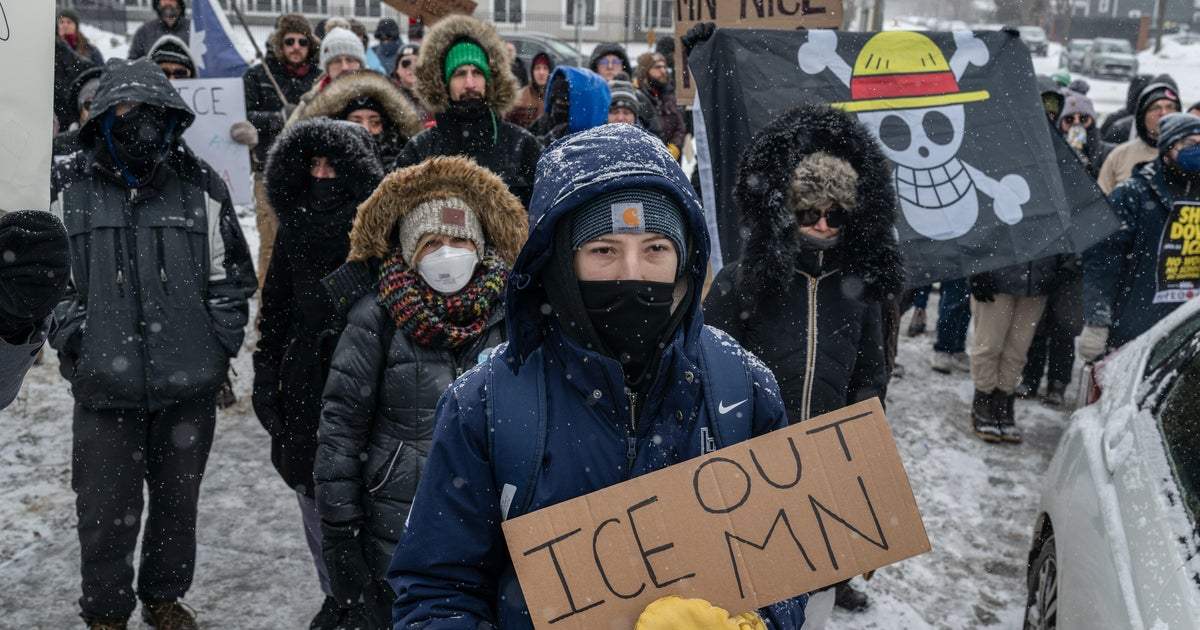Appeals court orders DOJ to turn over secret Mueller grand jury docs to Congress
Washington — A federal appeals court in the District of Columbia has sided with the House Judiciary Committee in its quest to obtain secret grand jury documents from special counsel Robert Mueller's investigation, ruling Tuesday that the Justice Department must turn over the information to lawmakers.
In a divided 2-1 ruling, a three-judge panel on the U.S. Court of Appeals for the District of Columbia Circuit affirmed a lower court order and found the House Judiciary Committee established a "particularized need" for the grand jury materials.
"In short, it is the district court, not the Executive or the department, that controls access to the grand jury materials at issue here," Judge Judith Rogers wrote in an opinion for the court. "The department has objected to disclosure of the redacted grand jury materials, but the department has no interest in objecting to the release of these materials outside of the general purposes and policies of grand jury secrecy, which as discussed, do not outweigh the committee's compelling need for disclosure."
Judge Neomi Rao, appointed by President Trump, dissented, writing that the Judiciary Committee does not have the legal standing to bring the case and the lower court's opinion should be thrown out.
"Fundamental principles of separation of powers and the relation of the grand jury to the three branches necessarily lead to the conclusion that the committee cannot fight this interbranch dispute through the courts," Rao wrote.
The ruling can be appealed to either the full D.C. Circuit or the Supreme Court. Justice Department spokeswoman Kerri Kupec said the department is reviewing the ruling.
After Mueller released his long-awaited report on Russian meddling in the 2016 elections last year, the House Judiciary Committee asked the court to allow it to see sealed grand jury information, including "underlying transcripts or exhibits" of testimony and redacted information contained in Mueller's report.
In October, U.S. District Court Chief Judge Beryl Howell sided with the House Judiciary Committee and granted its request for the information. The Justice Department appealed the ruling to the D.C. Circuit.
The victory for House Democrats comes after another panel in the same appeals court ruled against them last week in their effort to enforce a subpoena to former White House counsel Don McGahn and ordered their lawsuit to be dismissed outright.
Rogers and Judge Thomas Griffith both heard the separation-of-powers dispute involving McGahn, with Griffith writing the majority opinion and Rogers dissenting.
In his concurring opinion in the Mueller case Tuesday, Griffith noted that unlike the case involving McGahn, the battle over grand jury materials "does not involve a suit between the political branches over executive-branch documents or testimony. Instead, it involves an application for access to records of the grand jury, whose disclosure the district court has traditionally controlled."
House Democrats argued that during the impeachment proceedings against Mr. Trump, the committees needed the redacted documents to decide whether to bring more impeachment charges.
The divided ruling from the D.C. Circuit affirmed the lower court's ruling that a "Senate impeachment trial is a 'judicial proceeding'" that warrants the unsealing of the documents.
While Mueller detailed in his report last year 10 instances in which Mr. Trump may have obstructed justice, he stopped short of reaching a conclusion about his conduct.
Because of this, the House expressed a "particularized need" for the redacted grand jury materials, the D.C. Circuit ruled.
"Special Counsel Mueller prepared his report with the expectation that Congress would review it," Rogers wrote. "The district court released only those materials that the special counsel found sufficiently relevant to discuss or cite in his report."
The court cautioned against the perception that it is bending to the demands of Congress.
"Of course, courts must not simply rubber stamp congressional requests for grand jury materials," Rogers wrote. "In cases where the connection between the grand jury materials and the committee's impeachment investigation is not obvious, further inquiry by the district court may be needed."
In the wake of Mueller's report, the House began impeachment proceedings against Mr. Trump that focused not on the conduct unveiled by the special counsel, but rather his dealings with Ukraine. He was impeached on two impeachment charges in the House but acquitted by the Senate last month.
Clare Hymes contributed reporting.





